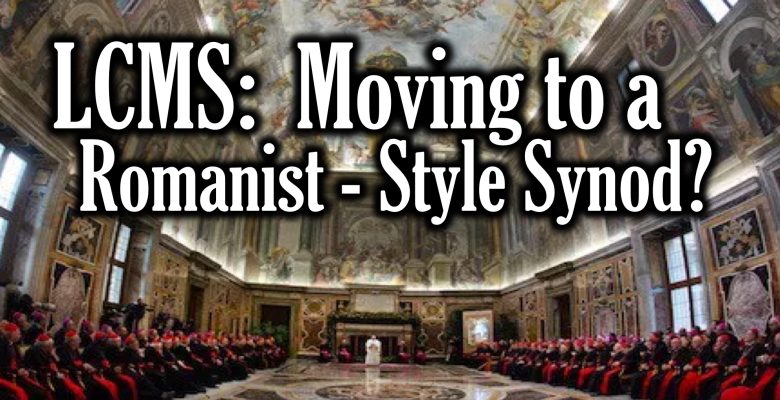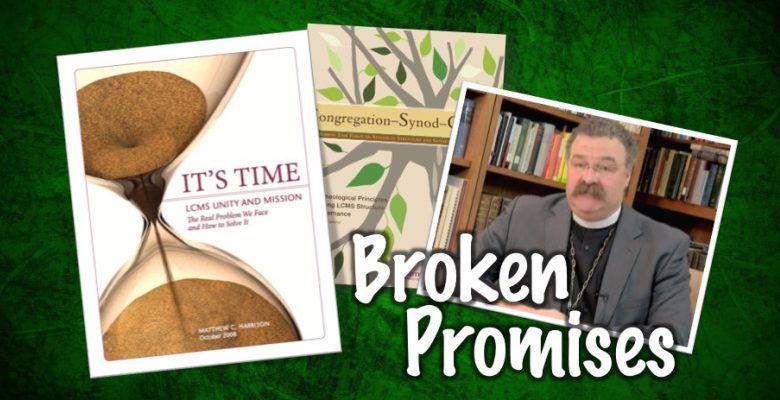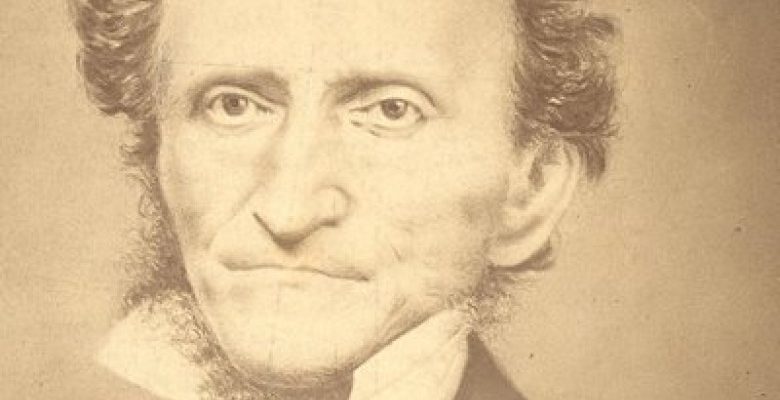In the LCMS struggle with the choice governance structure, this essay supports the historical and Scriptural governance: Synod serves congregations.


In the LCMS struggle with the choice governance structure, this essay supports the historical and Scriptural governance: Synod serves congregations.

Pastor Anthony Steinbronn, President of the New Jersey District, opposes the movement of our Synod toward a church Martin Luther opposed 500 years ago, where all authority is centered in one person and others are authorized to maintain control using the traditions of men rather than the Word of God…ALONE.

In 2010, the LCMS adopted sweeping changes to the Handbook of the Synod. Here’s the strange twist: while the convention adopted the “Blue Ribbon Taskforce” changes, delegates also strangely (and certainly ironically) then elected as President a man who opposed the changes, Matthew Harrison. Delegates wanted Synod’s work to be more responsive to the congregations of the Synod. What have we gotten instead?

We all expect, even demand our “rights” – right to life, liberty, civil rights, human rights, women’s rights, rights of the unborn. As Americans, we have a “Bill of Rights.” As followers of Jesus and members of the LCMS, we have rights within our Synod. That is, until someone tries to take them away. “The Congregation’s Rights” in the Lutheran Church – Missouri Synod also demands our attention. Our Synod has a history of drifting away from our foundations, a tendency in our history to lift up the human organization of Synod, or the clergy, or Synod leadership above the congregation. Sometimes there’s a group – or an individual – pushing us down that road away from an advisory Synod. It is happening now. We need to push back. Executive Summary Before the Synod was formed in 1847, the Saxon immigrants under Pastor (later “Bishop”) Martin Stephan had a polity in

Sadly, our Synod is moving toward a greater centralization of power. Despite the LCMS being historically a Synod of congregations bound together by a common confession and walking in love, we are more and more ruled by an administration in the International Center bent on control. If we resign ourselves to a Synod with centralized control, we will never have freedom from fear as workers in the harvest, freedom from church-political agendas that limit the Gospel — and we will never be free to be the Church our Lord has called us to be, nor fulfill His commission for us as followers of Jesus.